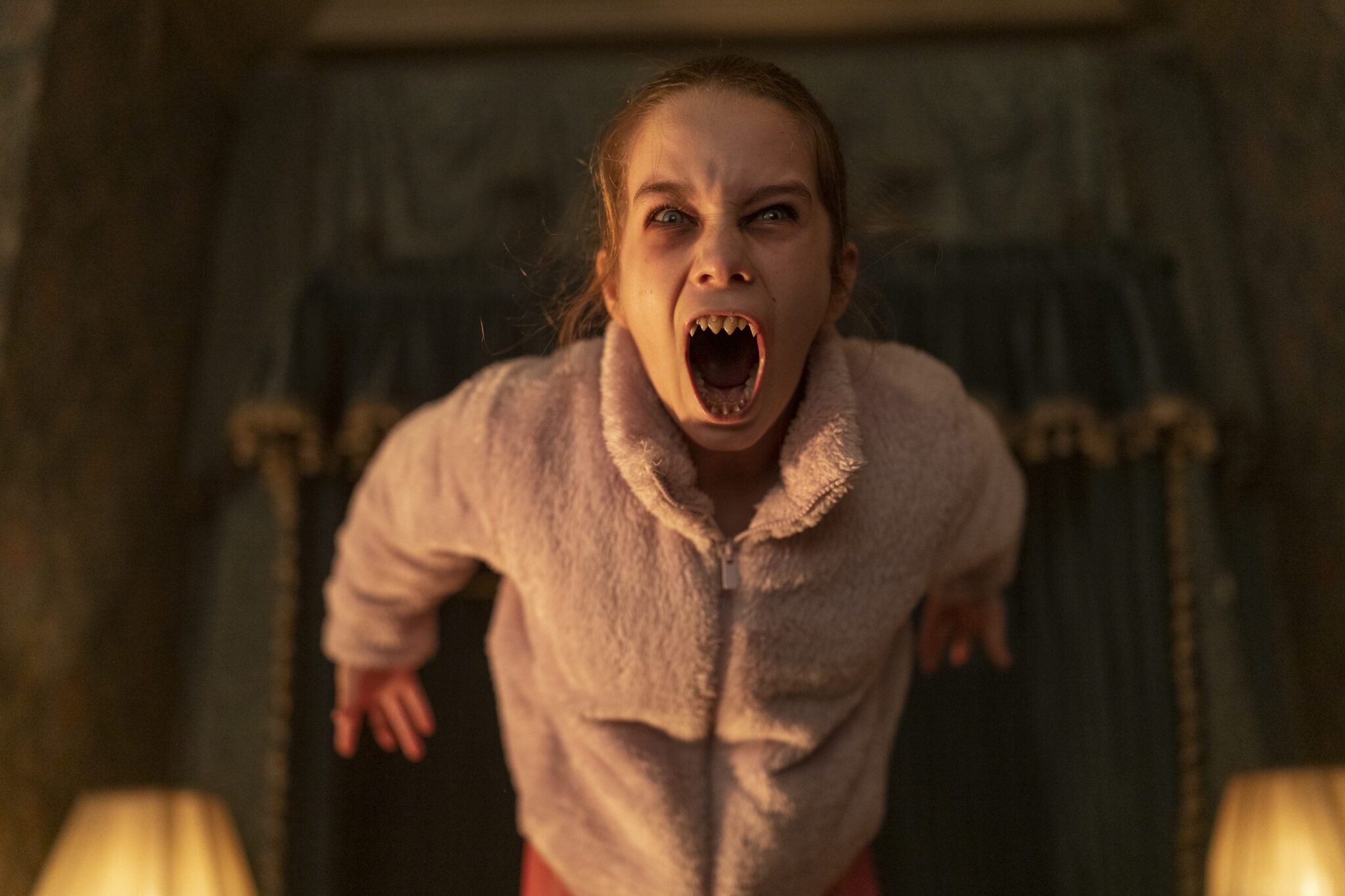?If you chose to fight, you may die?but for your cause, and that is a good death.?
Medieval from director Petr J?kl, is the story of a Czech hero, Jan ?i?ka. The film opens with voiceover saying ?Blood. Tyranny. Intrigue. Power.? That might make you think of Game of Thrones, and you wouldn?t be far off. Medieval has all the cunning, betrayals, battles, and gore, but on a smaller scale (and without dragons). [Note: although the story and director are Czech, Medieval is an English language film.]
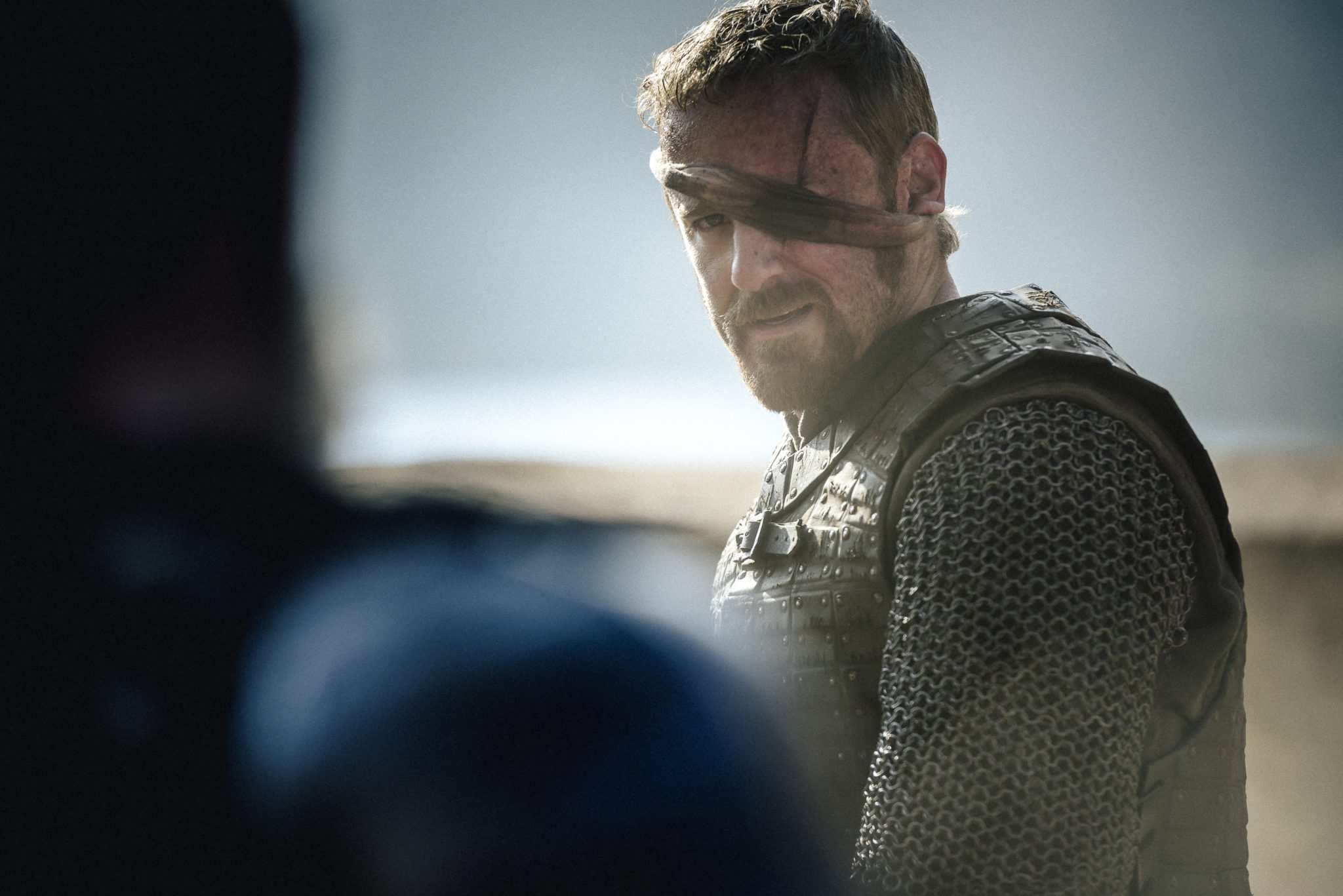
Set near the turn of the 14th and 15th centuries, we are told of the divisions that face the Holy Roman Empire. There are also divisions in the church, with two popes, one in Rome, the other in Avignon. King Wenceslas IV of Bohemia (Karel Roden) is in line to become the new Emperor, but must get safely to Rome to be crowned. His half-brother Sigismund (Matthew Goode) and nobleman Henry III of Rosenberg (Til Schweiger) are plotting to prevent this in order to advance their own political power.
One of Wenceslas?s supporters, Lord Boresh (Michael Caine) hires the mercenary band led by ?i?ka (Ben Foster) to kidnap Rosenberg?s fianc?, Lady Katherine (Sophie Lowe) as leverage. Katherine is someone who hated the barbarity of the iron rule that the kings and knights enforce on the people. She is, we discover, drawn to the ideas of the Hussites, a religious sect that emphasized the laity (more on this later).
Katherine proves to be courageous and compassionate. Soon ?i?ka has fallen in love with her and his vision of the world begins to expand to see the value of the peasants who are so oppressed by the rulers of the world. ?i?ka begins to work with the peasants both because he is outnumbered by the various factions playing this game of thrones, and to empower them to defend their homes and families. In battle, ?i?ka begins to develop new strategies. And, of course, there must be a big one on one between ?i?ka and the brutal leader of Sigismund?s faction (Roland M?ller) that will decide what becomes of Katherine?a battle in which she is also an important part.
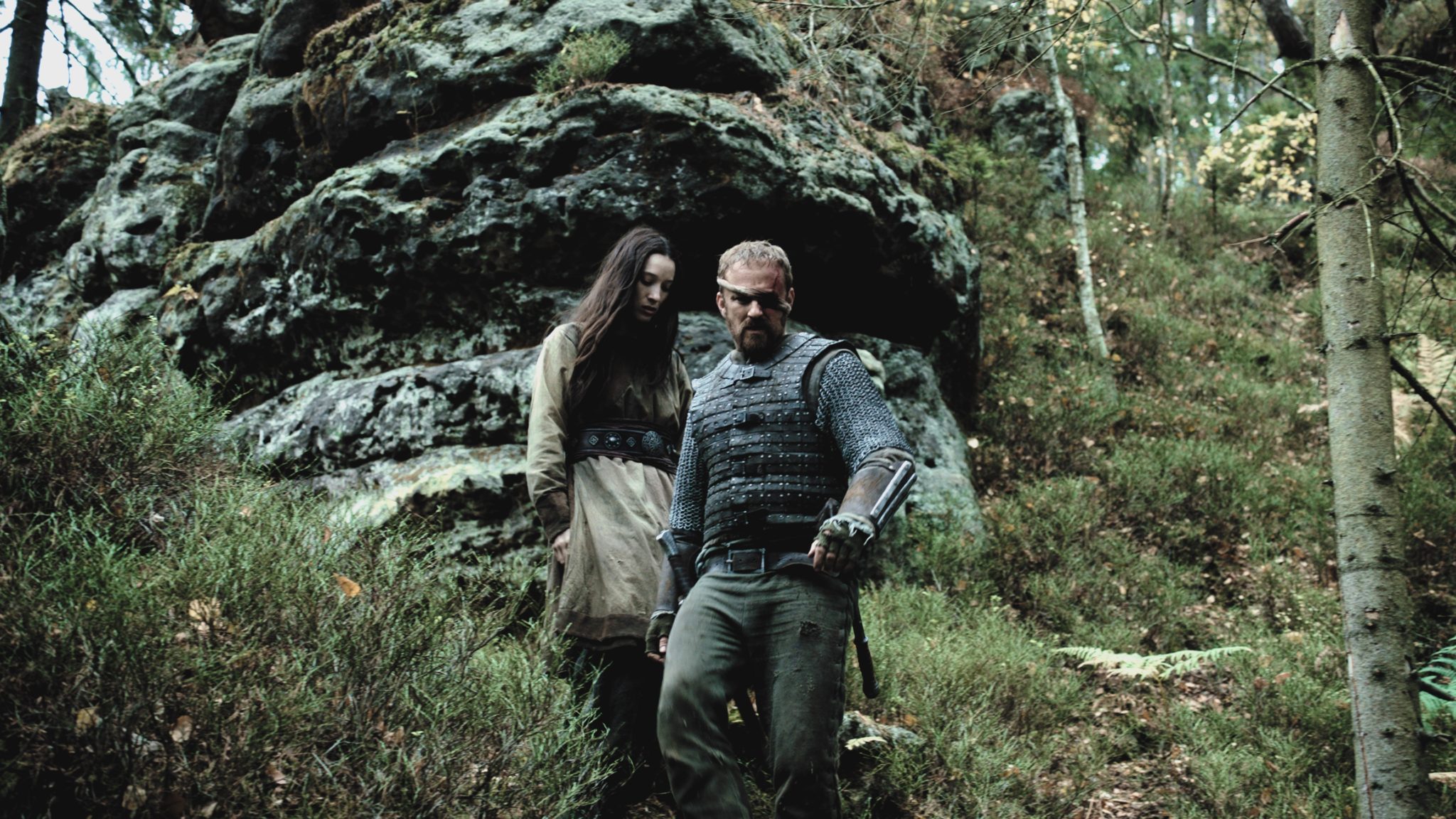
?i?ka goes on to be a great military leader as the leader during the Hussite Wars. This film is really more about his evolution from an outlaw-mercenary into a leader. He also evolves from the ideas of the divine right of kings to supporting the rights of the people when they rise up against oppression. His evolution is seen in another series of words in voiceover at the end of the film: ?Honor. Justice. Freedom. Faith. Hope.?
The religious aspect of the film plays out in the background. There are some brief mentions of Jan Hus and Hussites, but most viewers will not have much understanding of how that all ties in. The Hussites were one of the movements within the church that led up to the Protestant Reformation. The Hussites believed in the power of the laity and that the church had become corrupt. (Who could blame them when the church couldn?t even agree on who was the real Pope?) They also rejected the idea that the law of the King was the law of God. The film includes a Hussite hymn (and battle song): ?Ye who are God?s warriors, and of his law, Pray to God for help, and have faith in him.?
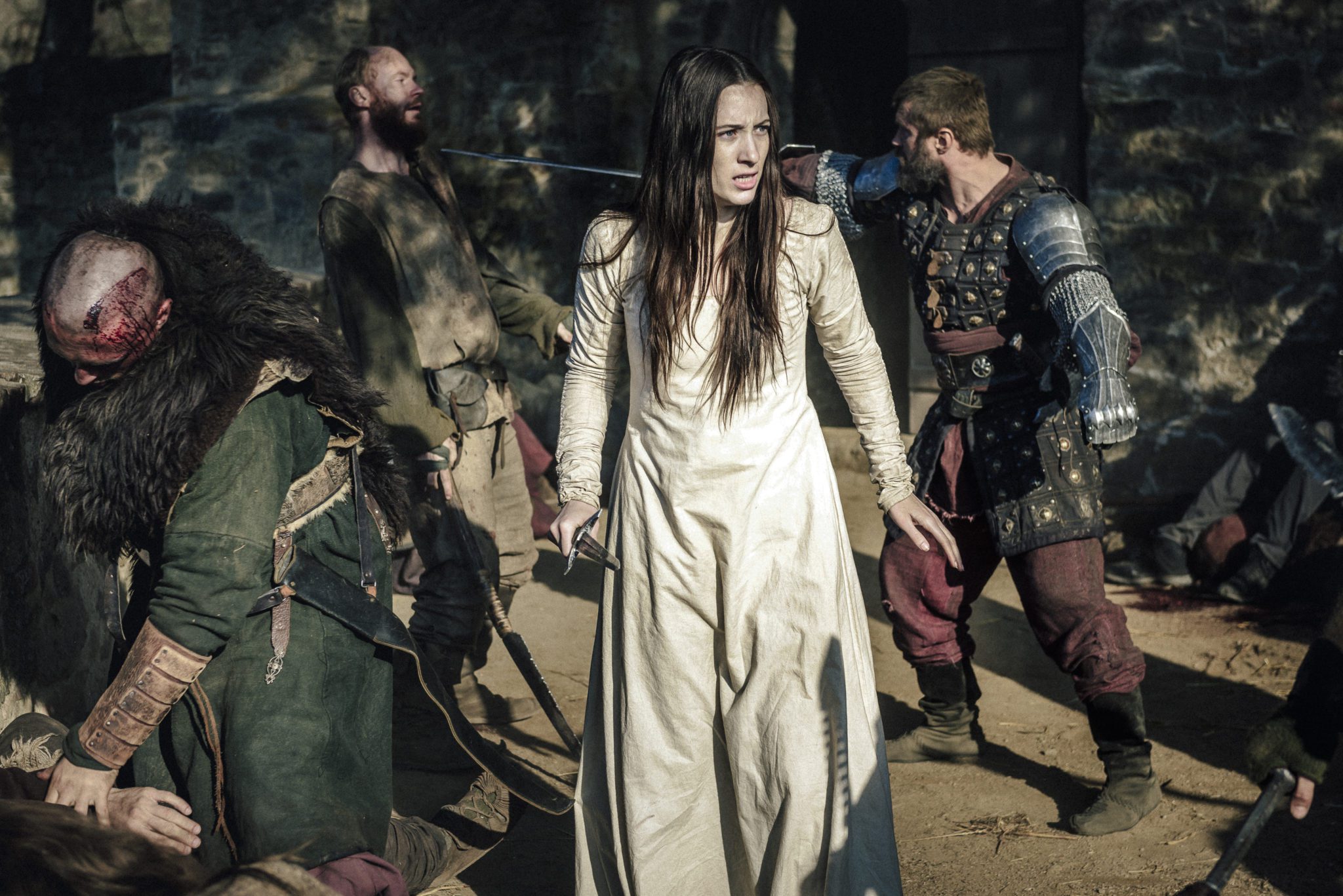
There is a certain democratization that accompanies the idea that the laity can be trusted with some of the important aspects of Christianity?such as being able to read the Bible for themselves. This film provides a touch of insight into a religious and political conflict that most of us don?t know about. But the intertwining of the two worlds is often a key part in the history of both the church and the political realm.
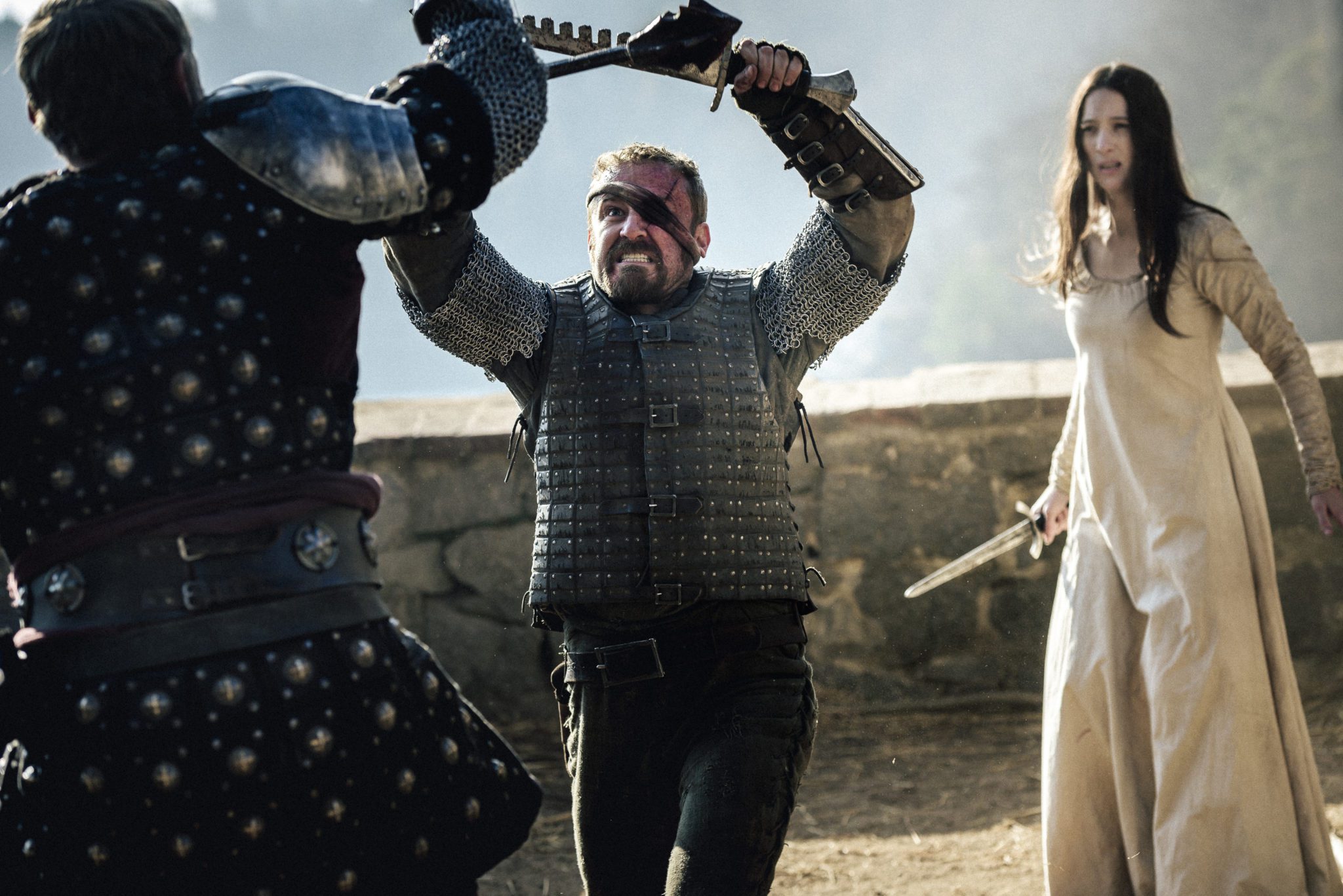
Medieval is playing in general release.
Photos courtesy of The Avenue.




